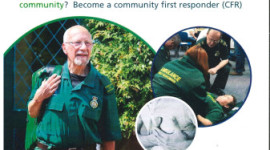Town History
The Sawbridgeworth Local History Society was formed in 2016. You can find details about their talks programme, local history articles, history walks and publications at www.sbwhistory.com
Sawbridgeworth is four miles south of Bishop's Stortford, twelve miles east of Hertford and nine miles north of Epping. It lies on the A1184 and has a railway station that links to Liverpool Street station in London. The river Stort flows through the east of the town, past the Maltings. Underlying the town at some depth is the London Clay stratum, with a thick layer of Boulder clay laid down during the ice ages, including the Anglian. The soil on top of this is a loam, with erratics of conglomerate known as "Hertfordshire puddingstone" found around the town.
Nearby towns and cities: Bishop's Stortford, Harlow Nearby villages: High Wych, Spellbrook, Much Hadham
History
Prior to the Norman Conquest, most of the area was owned by the Saxon Angmar the Staller.
The Manor of "Sabrixteworde" (one of the many spellings previously associated with the town) was recorded in the Domesday Book. After the Battle of Hastings it was granted to Geoffrey de Mandeville I by William the Conqueror. Local notables have included John Leventhorpe, an executor of both King Henry IV and King Henry Vs' wills, and Anne Boleyn, who was given the Pishiobury Estate, located to the south of the town.
Much of the town centre is a conservation area; many of the buildings date from the Tudor, Stuart, and Georgian periods. Great St. Mary's church was originally built in the 13th century (although a church on the site existed in Saxon times) and includes a Tudor tower containing a clock bell (1664) and eight ringing bells, the oldest of which dates from 1749.[2] Historically, it is unclear where the apostrophe lies in "Great St. Mary's", and even which St. Mary it was, and why it is "Great". Ralph Jocelyn of Hyde Hall, who was twice Lord Mayor of London in the 15th century, is buried here; images of many of his family and other locals have been engraved on brass, and hence the church is popular for enthusiasts of brass rubbing.
The town's prosperity came from the local maltings, owned by George Fawbert and John Barnard; in 1839 they set up the Fawbert and Barnard charity to fund local children and their education, funding a local infant school that still exists today.
Apart from the historic nature of the town, attractions include local river cruises in the summer, the swtiching on of the Christmas lights on the last Saturday in November, one annual fair held on Fair Green on the Sunday of the first May Bank Holiday and Carol singing on the green on Christmas Eve.
By the time of the Norman conquest, or soon after, Sawbridgeworth's rich farming land was fully developed for cultivation as was possible with the means available at the time: it was the richest village community in the county. It is, then, hardly surprising that many important medieval families had estates here. The land was divided amongst them, into a number of manors or distinct estates; the Lord of each manor had rights not only over this land but also over the people who farmed it. The number of manors increased during the Middle Ages, by a process of subinfeudation, that is the granting out of a part of an existing manor to a new owner so that the new manor was created. Many manors sprang from the original Domesday Book holding of the de Mandeville family. The first came to be called Sayesbury manor, from the de Say family who inherited it from the de Mandeville's in 1189. The many important people who held these manors built themselves houses with hunting parks around them; when they died their tombs enriched the parish church, so that today St. Mary's has one of the finest collections of church monuments in the country.
During World War II RAF Sawbridgeworth operated Supermarine Spitfires, Westland Lysanders, P-51 Mustangs, and de Havilland Mosquitos.
Politics and local government
Sawbridgeworth is administered by East Herts District Council. The Town Council currently has 12 councillors, covering both Sawbridgeworth and Spellbrook.
Sawbridgeworth is twinned with:
France Bry-sur-Marne in France (1973)
Germany Moosburg
In Parliament, it is in the Hertford and Stortford constituency.
The village of Lower Sheering in Essex adjoins Sawbridgeworth, east of the railway station, along the Hertfordshire - Essex border. It shares the same postal code as Sawbridgeworth, although for local government purposes it comes under the Epping Forest district of Essex.
Education
Sawbridgeworth has one secondary school, the Leventhorpe School, which also offers a public swimming pool and gym. Mandeville, Reedings, Fawbert & Barnard and Spellbrook are schools offering primary education in the parish. Many children from Sawbridgeworth also attend High Wych Primary School in the neighbouring village.
Sport
Sawbridgeworth Town F.C., a non-league football club, plays at Crofters End. Sawbridgeworth Cricket Club is one of the leading cricket clubs in the south of England, fielding five senior sides on a Saturday and seven colts sides. The main ground is Town Fields, situated behind Bell Street. Sawbridgeworth also has tennis and bowls clubs.
Transport
Sawbridgeworth railway station is situated on the London to Cambridge line. There is a ticket office and self-service ticket machine, but there is no longer a permit to travel machine. There are also many bus services to the nearby towns of Harlow and Bishops Stortford.
Latest news

19/05/25 Become a Community First Responder
Helping people in your community and saving lives. Please visit our website here for more information. ...
